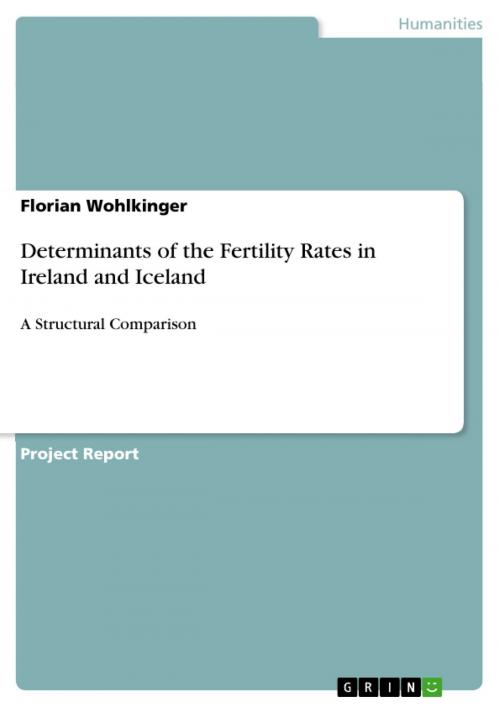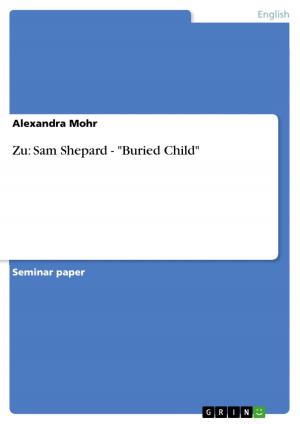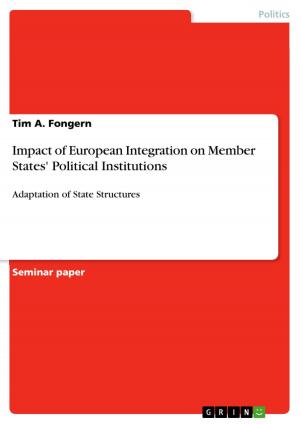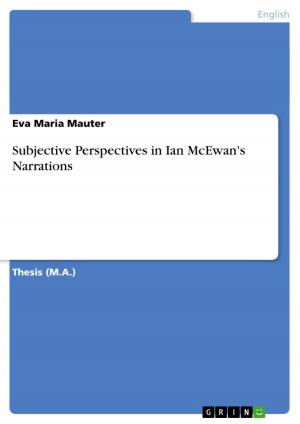Determinants of the Fertility Rates in Ireland and Iceland
A Structural Comparison
Nonfiction, Social & Cultural Studies, Social Science, Demography| Author: | Florian Wohlkinger | ISBN: | 9783640193875 |
| Publisher: | GRIN Publishing | Publication: | October 22, 2008 |
| Imprint: | GRIN Publishing | Language: | English |
| Author: | Florian Wohlkinger |
| ISBN: | 9783640193875 |
| Publisher: | GRIN Publishing |
| Publication: | October 22, 2008 |
| Imprint: | GRIN Publishing |
| Language: | English |
Project Report from the year 2007 in the subject Sociology - Social System, Social Structure, Class, Social Stratification, grade: 1,0, University of Bamberg (Fakultät für Sozial- und Wirtschaftswissenschaften), course: HS Family and Work Policies, 9 entries in the bibliography, language: English, abstract: This policy brief is based on an analysis of Ireland and Iceland with respect to the causes that lead to their high fertility rates. Since Ireland is considered as a typical male breadwinner model country it is important to investigate the structural and institutional reasons and their underlying mechanisms that encourage child bearing. Iceland, on the other hand, has also an extremely high fertility rate, but contrary to Ireland there is high female labor force participation. The idea behind the comparison presented is that there are significant structural differences in both countries which should lead to different effects, but instead the outcome (in terms of birth rate) is almost identical in both countries. The upcoming chapter tries to give an overview about existing studies dealing with the decline in fertility rate. This overview is followed by a general idea about the underlying theoretical conception of the presented comparison. It also will portray the categories in which the independent variables can be divided. In the following chapter the characteristics of a couple of influences of the countries of Ireland and Iceland will be described in detail. These characteristics will be compared and analyzed in Chapter 4, which also tries to give some hypotheses about how their influence affects the fertility rate. Chapter 5 finally will infer some implications for the policy makers in the investigated countries from the compiled hypotheses.
Project Report from the year 2007 in the subject Sociology - Social System, Social Structure, Class, Social Stratification, grade: 1,0, University of Bamberg (Fakultät für Sozial- und Wirtschaftswissenschaften), course: HS Family and Work Policies, 9 entries in the bibliography, language: English, abstract: This policy brief is based on an analysis of Ireland and Iceland with respect to the causes that lead to their high fertility rates. Since Ireland is considered as a typical male breadwinner model country it is important to investigate the structural and institutional reasons and their underlying mechanisms that encourage child bearing. Iceland, on the other hand, has also an extremely high fertility rate, but contrary to Ireland there is high female labor force participation. The idea behind the comparison presented is that there are significant structural differences in both countries which should lead to different effects, but instead the outcome (in terms of birth rate) is almost identical in both countries. The upcoming chapter tries to give an overview about existing studies dealing with the decline in fertility rate. This overview is followed by a general idea about the underlying theoretical conception of the presented comparison. It also will portray the categories in which the independent variables can be divided. In the following chapter the characteristics of a couple of influences of the countries of Ireland and Iceland will be described in detail. These characteristics will be compared and analyzed in Chapter 4, which also tries to give some hypotheses about how their influence affects the fertility rate. Chapter 5 finally will infer some implications for the policy makers in the investigated countries from the compiled hypotheses.















